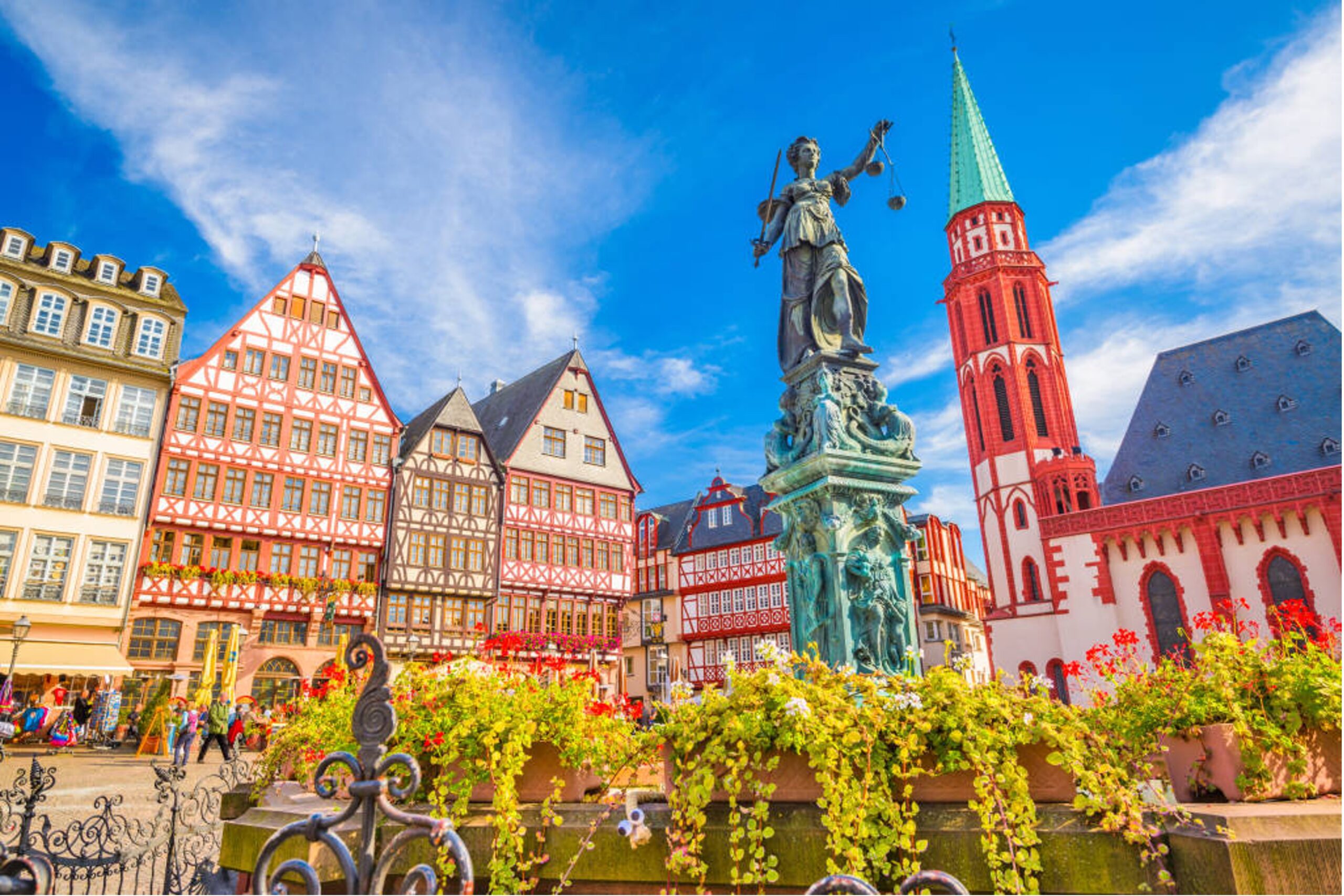Here are nine untranslatable German travel words every wanderer should know.

One of the cool aspects of learning a new language is discovering unique vocabulary that doesn’t exist in one’s native tongue. German, with its penchant for compound words, offers particularly rich linguistic treasures for travelers. Here are nine untranslatable German words that perfectly capture the essence of travel in ways English just can’t.
1. Fernweh
Although there’s no direct translation for “Fernweh” in the English language, the literal translation is “far-sickness.” It describes that feeling of itchy feet, when you are opening every travel deal that appears in your inbox and daydreaming about your next adventure during coffee breaks. The closest English equivalent would be “wanderlust,” which is, ironically, a loan word from German that came to have a different meaning in English; the word was originally a German verb “wandern” (to hike), and still means this in German today.
2. Gemütlichkeit
Although often translated as “cozy,” (and dictionary definitions might include “friendliness or geniality,” too), this word encompasses much more; “gemütlichkeit” is about achieving the perfect balance among cozy, warm, and comfortable. For those familiar with the Danish concept of “hygge” that has become popular recently, “gemütlichkeit” can be considered the German equivalent.
3. Kopfkino
This word literally translates to “head cinema.’” Kopfkino describes those moments when you play out how you imagine a scenario would go in your head—like staring aimlessly out a office window while dreaming of exploring medieval France or reading about the original Arc de Triomphe in Provence instead of studying algebra.
4. Luftschloss
The German word “luftschloss” translates as “air castle;” it refers to unrealistic dreams one might have. A more idiomatic English translation would be “pipe dream.” And though it may carry somewhat negative connotations, many seemingly unrealistic dreams actually become achievable with luck and planning!
5. Sehnsucht
When you search for an English translation of “sehnsucht,” dictionaries return dozens of different possibilities, confirming the word’s status as untranslatable. The word combines “sehnen” (to yearn) and “sucht” (which can mean addiction but also yearning or seeking in older usage), creating something closer to “yearning-seeking.” Unlike “fernweh” (longing for distant places), “sehnsucht” is longing for something ineffable or perhaps unattainable. C.S. Lewis, author of the Narnia books, described this word beautifully: “That unnamable something, desire for which pierces us like a rapier at the smell of bonfire, the sound of wild ducks flying overhead, the title of The Well at the World’s End, the opening lines of ‘Kubla Khan’, the morning cobwebs in late summer, or the noise of falling waves.” Perhaps it’s best described as future-thinking nostalgia.
6. Sprachgefühl
Though not strictly travel-related, “sprachgefühl” (literally, “language feeling”) refers to an intuitive sense for what sounds natural in a language. It’s more than just talent for language learning—it’s the ability to instinctively recognize correct grammar, word choice, and idioms without necessarily knowing the explicit rules. While some travelers may envy that classmate who could memorize vocabulary after a single glance, true “sprachgefühl” is about developing an ear for the musicality and rhythm of a language, allowing one to navigate new linguistic territories with greater ease.
7. Torschlusspanik
Literally translated as “gate-closing panic,” “torschlusspanik” refers to the fear that time is running out to achieve your goals—from that feeling when approaching the end of a deadline without having made sufficient progress to the anxiety that life is passing by too quickly without accomplishing what you had hoped.
8. Waldeinsamkeit
Another compound word, “waldeinsamkeit” combines “wald” (wood) and “einsamkeit” (solitude). It describes the peaceful, contemplative feeling of being alone in a forest—not loneliness in the negative sense, but rather a positive state of solitary communion with nature, such as those tranquil moments when one pauses amidst the trees to appreciate the surrounding beauty, finding serenity and connection in the quiet solitude of the natural world.
9. Reisefieber
This word captures the jittery, excited feeling one experiences before embarking on a new journey—a mixture of anticipation, nervousness, and thrill that comes with travel preparations.
Twist’s Take: Language shapes how we perceive and experience the world; perhaps by incorporating these German words into our travel vocabulary, we can better articulate the complex emotions that come with exploring new places.
